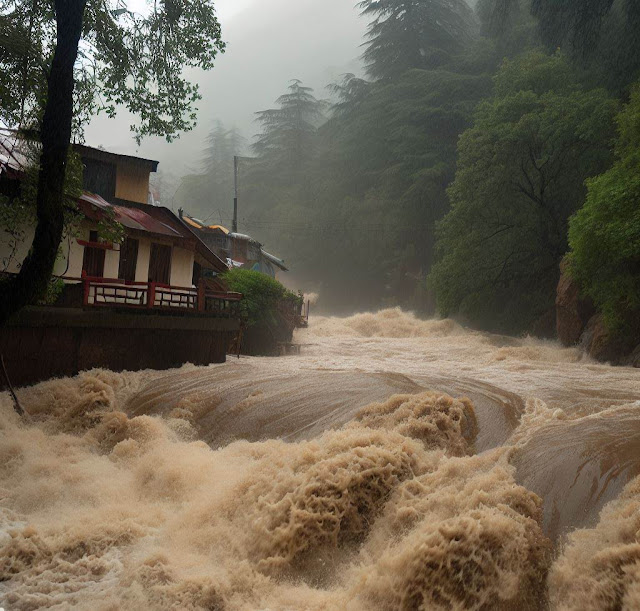Secrets of the Himalayas' Decline Revealed by AI – You Won't Believe Your Eyes!
Secrets of the Himalayas' Decline Revealed by AI – You Won't Believe Your Eyes!
On September 9th, we celebrate Himalaya Day, a day dedicated to recognizing the significance of the Himalayan region. But it's not just about admiring their grandeur; it's also about understanding the potential disasters and drawbacks that global warming brings with it.
The Significance:
The Himalayas, often referred to as the "abode of snow," are not just majestic mountains. They are a source of life for millions of people and a natural treasure for the world. Their pristine beauty and unique ecosystems are a testament to the wonders of our planet.
The Threat of Global Warming:
However, our beloved Himalayas are facing a grave danger - global warming. You might wonder, why should we be concerned about this? Well, here's the deal: global warming is causing significant problems in the Himalayan region, and if we don't take control measures, we could see more disasters like the recent ones in Uttarakhand and Himachal Pradesh.
The Disasters:
In recent times, these regions have witnessed unprecedented natural disasters. Heavy rainfall, landslides, and flooding have taken lives, destroyed homes, and wiped out infrastructure. But what's causing this sudden surge in disasters?
Blame it on Global Warming:
Scientists have been studying these calamities, and they're pointing fingers at global warming. Rising temperatures are messing with the weather patterns in the Himalayas. It's like a clash of titans up there, resulting in extreme rainfall and devastating cloud bursts. Even though the rainfall might be brief, it's exceptionally intense, causing widespread damage.
The Stats Don't Lie:
The numbers tell a worrying story. Over the past decade, Himachal Pradesh and Uttarakhand have seen a dramatic increase in excessive rainfall events. In 2011, there were 74 such events; by 2020, this number had surged to 118. Just this year, we've seen 166 deaths in Himachal Pradesh and 74 in Uttarakhand due to heavy rainfall and landslides.
The Impact of Human Activities:
Beyond the natural factors, we must acknowledge the role of human activities. Uncontrolled construction of hotels and multistory buildings without considering the carrying capacity of the area, coupled with the excessive increase in tourist numbers, has strained the region beyond its natural capacity. This overdevelopment has disrupted the delicate balance of the ecosystem, leading to soil erosion and destabilizing hillsides.
The Role of Climate Change:
While construction and tourism are contributing factors, meteorologists and climate scientists emphasize that the primary driver of the recent disasters is climate change. Rising temperatures have caused a drop in atmospheric pressure, creating a clash between two powerful weather systems. This atmospheric disturbance results in extra rainfall and cloud bursts.
Kuldeep Srivastava, the head of New Delhi's weather bureau, has explained that even though the rainfall may be brief, its intensity is extreme due to these changing weather patterns. The global increase in temperatures is the underlying reason behind these shifts, leading to more frequent natural disasters in the Himalayan regions.
What Can You Do?
You might be thinking, "What can I do about global warming?" Well, there's a lot you can do! Reduce your carbon footprint by using less energy, driving less, and conserving water. Support policies and initiatives that aim to combat climate change. Spread awareness among your friends and family. Remember, small actions can have a big impact when we all pitch in.
In a Nutshell:
On this Himalaya Day, let's celebrate the mountains and remember that they need our protection. Global warming is a real threat, and if we don't act now, we might see more tragedies like those in Uttarakhand and Himachal Pradesh. It's time to stand together and protect our planet, starting with the majestic Himalayas. Share this message with your friends, because we all have a role to play in preserving our world.

.jpeg)
.jpeg)
.jpeg)

.jpeg)
.jpeg)
.jpeg)





Post a Comment